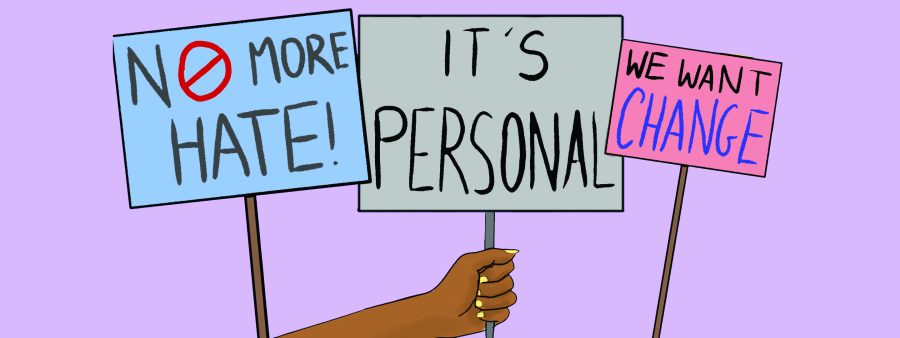The 2016 presidential election marked a fundamental shift in the psychology of politics. Campaign policies, promises and debates used to be openly discussed at our dinner tables. Since Donald Trump and Hillary Clinton’s gruesome brawl for the Oval Office, political topics have become so contentious they always resulted in emotional and headache-inducing screaming matches among even the closest of family members and friends. So, what fundamental political shift has occurred that explains why partisanship has become so unusually divisive, and, more importantly, what has been the result of this move toward emotion?
Driven by a sense of obligation to resolve increasingly important issues such as immigration, social justice, gun reform, women’s rights and the environment, everyday people are starting to foster a more personal connection to politics, resulting in increased civic engagement.
Because tensions between political parties skyrocketed during the 2016 election and have remained high since, polarizing political topics have reached peak divisiveness due to both a strong allegiance to political parties and deep antipathy toward the opposition. This connection to contentious issues, both on and off the ballot, have caused many to allow emotions play a part in their opinions, as well as bring forth more questions about maintaining a sense of morality in policymaking.
Impassioned and strong-willed activists are making their mark on the public sphere by not being afraid to speak their truth.
With a heightened passion for politics, this desire for change has become more common among average citizens, many of whom, instead of keeping politics separate from their everyday life, rally friends to vote and to join them at protests. According to a Washington Post-Kaiser Family Foundation Poll, one in every five Americans has participated in a rally since 2016.
Despite this surge of activism, as more and more politicians are plagued by scandal, voters tend to rationalize their support by separating candidates and their character from their proposed policies. Approving of a politician’s stance on tax reform, they say, does not necessitate supporting their actions or personal opinions surrounding non-political issues.
This notion is inherently flawed, as it ignores the ways human emotional responses are inextricably tied to politics. It is for this reason that trusting gut feelings in politics is important. Understanding policy requires investigating motives and real-world implications, as well as staying true to oneself, rather than focusing on practicality.
While some may think a deeper emotional connection to politics would stymie pragmatic policymaking, impassioned voters are more likely to become aware of domestic issues and inspire others to do the same. Becoming enthusiastic about politics won’t hinder one’s ability to think about issues in a sensible manner but will rather embolden the community to make change and to stand up for its beliefs in political contexts seeps into political opinions whether it be through implicit biases, explicit biases or personal history. It is for this reason that trusting gut feelings in politics is important. Understanding policy requires investigating motives and real-world implications, as well as staying true to oneself, rather than focusing on practicality.
While some may think a deeper emotional connection to politics would stymie pragmatic policymaking, impassioned voters are more likely to become aware of domestic issues, and inspire others to do the same. Becoming enthusiastic about politics won’t hinder one’s ability to think about issues in a sensible manner but will rather embolden the community to make change and to stand up for it’s beliefs in political contexts.































